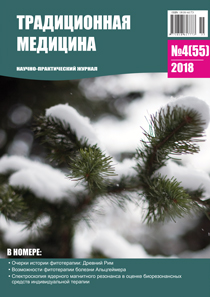Fruits of Goji (Lycium chinense Miller, Lycium barbarum L.): modern scientific evaluation of the traditional remedy
Keywords:
Goji, Wolfberry, Lycium barbarum, Lycium chinense, Traditional Chinese medicineAbstract
The fruit of Dereza (fruit of Goji) has an ancient tradition of medical and food use in East Asia. We analyzed the data of Traditional Oriental medicine on the therapeutic properties of the fruit of Dereza (Lycium spp.) from the perspective of modern scientific ideas (based on published in the open press the results of phytochemical, toxicological, pharmacological and clinical studies). Analysis of the results of phytochemical studies revealed that the main groups of biologically active substances responsible for pharmacotherapeutic action can be considered polysaccharides, carotenoids, flavonoids, vitamins.
In experimental studies in vitro and in vivo revealed the presence of antioxidant and immunomodulatory properties, especially in the context of age-related diseases, including atherosclerosis, neurodegeneration and diabetes. Hypoglycemic, hypolipidemic, antihypertensive and neuroprotective effects of water-soluble fruit extracts have also been established. The results of clinical studies confirm some of the actions established in animal experiments, but most experts agree that additional modern studies on standardized extracts of Dereza fruit are required for reliable conclusions.
The fruits are not toxic, but there are reports of drug interactions with warfarin, as well as contraindications for use in accordance with the theoretical foundations of traditional Chinese medicine.
Downloads
Published
How to Cite
Issue
Section
License
Reproduction of any materials without the written permission of the publisher is prohibited.
The responsibility for the accuracy of the information contained in articles and advertisements are the authors and advertisers.


